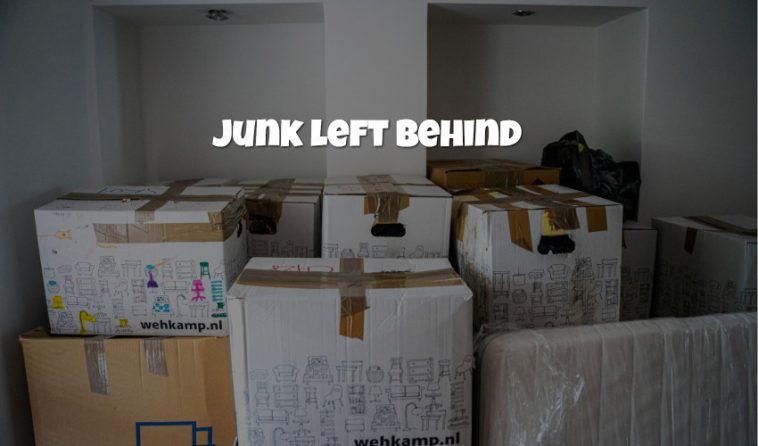I’m selling my home and I have a few things that are just sitting in the garage. Can I leave them there or do I need to take them with me? Also, if I don’t want to take them with me, can I leave them somewhere else for someone else to pick up?
It’s not uncommon for people to leave behind personal belongings when they sell their homes. While some items may have sentimental value, others may be simply too bulky or expensive to move. If you’re selling your home, you may want to consider what you’ll do with the belongings you can’t take with you. You may be able to sell them, donate them, or even give them away to friends or family members. Whatever you decide, be sure to do it before your move so you’re not left with a bunch of stuff you don’t need or want.
You can leave your stuff behind when selling your house, but beware that the new buyer might have the right to be compensated for the removal and disposal of your junk. We recommend that you ask your real estate agent to speak with the buyer about the stuff that you are going to leave behind. Besides, the buyer becomes the owner of any stuff left behind unless there was something specific in the sales contract/purchase agreement. You can also include a clause in the sales contract that specifies the items you will be leaving behind when selling. This way you will be covered after the closing date.
Can a Home Buyer Sue These Sellers for Leaving Some Belongings Behind
If a home buyer discovers that the sellers have left behind some of their belongings, they may be entitled to sue the seller for damages. In order to succeed in such a lawsuit, the buyer would need to prove that the sellers were aware that they were leaving behind some of their belongings and that the buyer suffered damages as a result. For example, if the buyer discovered that the sellers had left behind a cat and the buyer is allergic to cats, the buyer could sue for damages relating to their allergies.
In other words, if the sellers have not taken reasonable steps to ensure that the premises are clean and habitable for the buyer, and this omission causes damages, then the buyer may be able to sue for those damages.
What if The Buyer Refuses To Accept Possession?
If a buyer refuses to take possession of a home after closing, then this can give rise to a legal action called “specific performance”. Specifically, section 52 of the Real Estate Act permits either the seller or purchaser to bring an action in court requesting that the court order one party to perform their obligations under a contract.
For example, if you refuse possession of your new home after closing because you find out that it has been damaged by water or mould due to a leaky roof or windows that were left open during rainstorms (and this was not disclosed before you bought it), you may be able to ask for specific performance from the seller. This means that instead of taking possession of your damages home and suing for repairs separately from your purchase contract, you could ask for specific performance from the seller – which would require them to make all necessary repairs before delivering possession of your new home.
What should the buyer do with the stuff left behind by the seller after closing
As the homeowner you now own all the stuff left behind by the seller. Legally the buyer can do whatever they want with the seller’s belongings. Junk being left behind can be disposed off, sold, donated to charities, sold for recycling or given away for free to family, friends, and neighbors.




